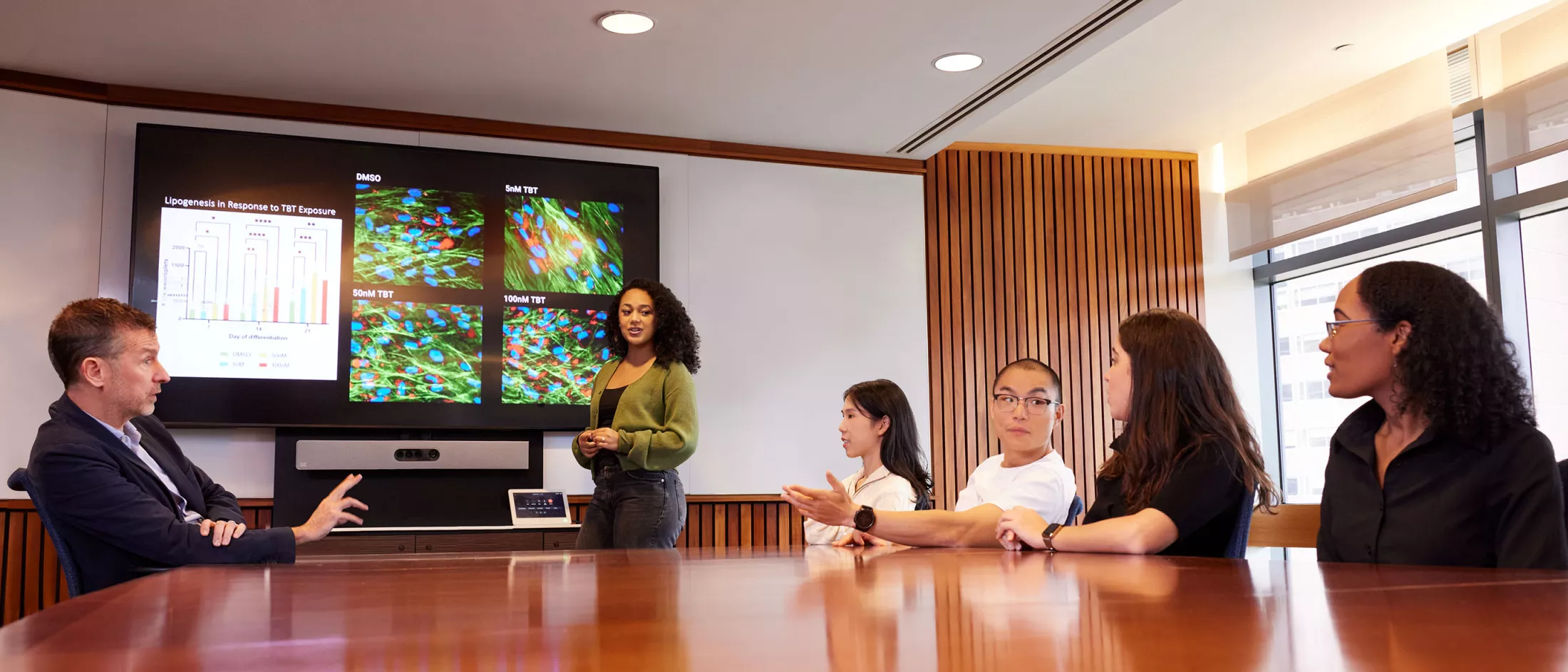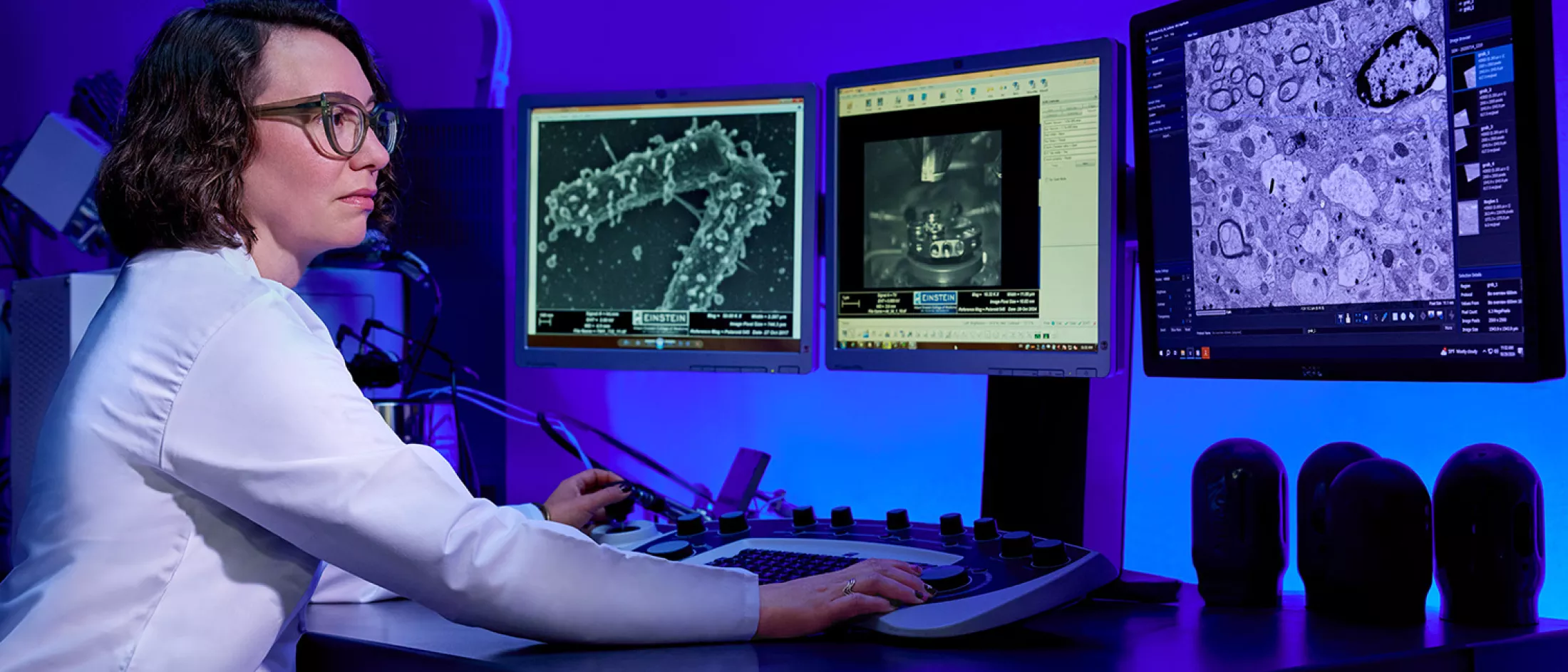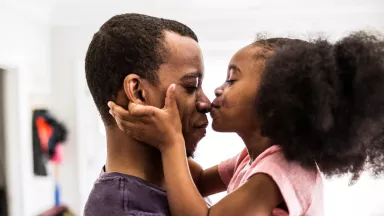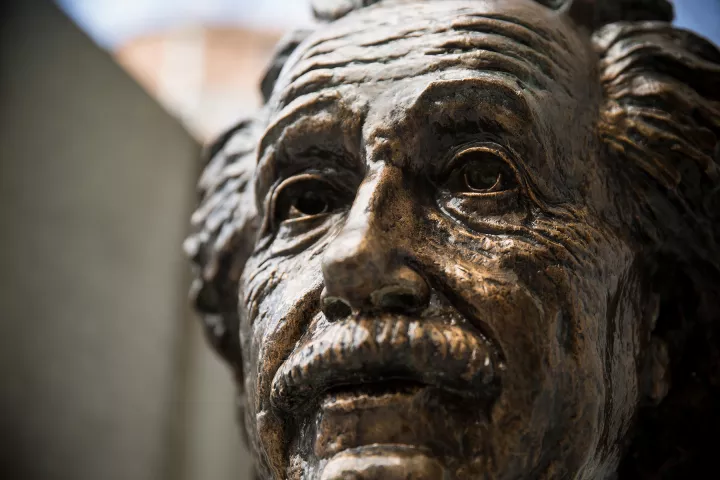New York Center for Rare Diseases Education & Training
In collaboration with the departments of Obstetrics and Gynecology and Women’s Health, Pediatrics, and Pathology at Montefiore Einstein, the Department of Genetics at our Albert Einstein College of Medicine, and the numerous programs, centers and clinics at the New York Center for Rare Diseases, we offer rigorous and comprehensive graduate medical education training programs for the next generation of healthcare professionals. Our students and trainees are mentored by a renowned multidisciplinary team of thought leaders in genetics, genomics and rare diseases, including internationally-recognized physician-scientists, genetic counselors and scientists from a broad range of clinical subspecialties.
One of the oldest and best known in the country, our Division of Pediatric Genetic Medicine has been leading the way in genetic and genomic disease care for infants, children and adults with genetic diseases, birth defects and congenital malformations for more than 50 years and has served as a model for others to follow. Our Reproductive and Medical Genetics Division is one of the most recognized prenatal diagnosis programs in the tristate area, focusing on the interaction of genetics and pregnancy.

Residency in Medical Genetics & Genomics
Montefiore Einstein is a premier academic health system, with one of the nation’s best children’s hospitals, renowned for groundbreaking research, advanced technologies, patient care innovation, public health advancements, and our world-class medical college. Residents are exposed to advanced diagnostic and treatment modalities, clinical and bench research opportunities as well as to our broad-based innovative healthcare network focused on incorporating a single standard of healthcare quality and access.
Our ACGME-accredited Residency in Medical Genetics and Genomics offers residents the opportunity to provide care to one of the most diverse communities in the nation, gaining unparalleled exposure to a wide range of inherited and rare conditions and pathologies. Through a robust clinical care experience, wide scope of faculty expertise, and complementary clinical, translational, and basic science research programs, our residency program offers residents broad clinical and research experiences and mentorship from a team of internationally-recognized experts tailored to facilitate future career development in their chosen field, be it in the research, clinical and/or non-clinical setting. Our goal is to foster the careers of our trainees to make them prepared for modern clinical practice and become leaders in medical genetics and genomics, clinical care delivery and research.
Our two-year categorical ACGME-accredited Residency in Medical Genetics and Genomics was established more than forty years ago and offers exposure to all aspects of Genetics and Genomics training. We offer two residency program tracks, a reproductive genetics (Obstetrics and Gynecology) track and a pediatrics genetics (Pediatrics) track, providing comprehensive exposure to a broad variety of patients and pathologies. Residents who have completed at least one year of an accredited residency program are considered “fellows” and function as fellows in the Department of Obstetrics & Gynecology and Women’s Health and in the Department of Pediatrics.
Residents gain broad exposure to medical genetics and genomics and the wide variety of our numerous subspecialty and multi-disciplinary programs, centers and clinics at the New York Center for Rare Diseases including Clinical Pediatric and Medical Genetics, Reproductive Genetics, Adult and Pediatric Cancer Genetics, Cardiogenetics and Congenital Aortopathies, 22q11.2 microdeletion syndrome, Williams Syndrome, Dermatogenetics, Neurogenetics, and other specialties. Working with the New York Center for Rare Diseases, our program is also unique for training in bioinformatics, variant interpretation, and computational genomics.
We actively foster research opportunities for fellows in both clinical and laboratory-based projects, with opportunities in Departments and laboratories throughout the medical school and hospital. Trainees are encouraged to present at local, regional, national and international meetings including the American Society for Human Genetics (ASHG) and the American College of Medical Genetics (ACMG) annual meetings. Trainees are additionally encouraged to participate in genetics and genomics education for medical students.
Fellowship Programs
We offer broad-based teaching and research collaboration between the Departments of Obstetrics and Gynecology and Women’s Health, Pediatrics, and Pathology at Montefiore Einstein, the Department of Genetics at our Albert Einstein College of Medicine, and the numerous programs, centers and clinics at our New York Center for Rare Diseases. Our students and trainees are exposed to a wide range of clinical, translational, and basic science research opportunities and mentored by an elite team of world-renowned physician-scientists and scientists who collaborate closely across disciplines and with investigators throughout the world. Our research programs are focused on numerous areas of rare disease research, from exploring the mechanisms of diseases at the cellular and molecular level to developing diagnostic and therapeutic solutions for a broad range of rare conditions.
Our two-year ACGME-accredited Fellowship Program in Laboratory Genetics and Genomics (LGG) is designed to provide high-quality educational experiences in the training of genetic laboratory specialists by an elite multidisciplinary team of internationally recognized geneticists, molecular pathologists, genetic counselors and scientists from a broad range of clinical subspecialties. The fellowship trains individuals to become the next generation of diagnostic geneticists and molecular pathologists with knowledge and expertise in traditional and modern genetics and genomics. Fellows have access to the extensive resources of the Department of Pathology as well as broad-based teaching and research collaboration from the departments of Pediatrics and Obstetrics and Gynecology and Women’s Health, the Department of Genetics, and the numerous programs, centers and clinics at the New York Center for Rare Diseases.
The program is built on the accredited training programs in anatomical and clinical pathology, hematopathology, clinical genetics, and molecular genetic pathology and prepares each fellow to direct a molecular, genomic and/or cytogenetics diagnostic laboratory. Fellowship training includes didactic sessions, active involvement in clinical case sign-out, training in laboratory bench work with research and development projects, and participation in medical genetics clinics and teaching conferences. In addition to laboratory genetics and genomics, training encompasses all aspects of medical genetics including clinical genetics, genetic counseling and biochemical genetics.
Our one-year ACGME-accredited fellowship in Molecular Genetic Pathology provides comprehensive training in molecular pathology, genomics, cytogenetic/fluorescence in situ hybridization (FISH), microarray comparative genomic hybridization (CGH) and molecular microbiology and virology by an elite multidisciplinary team of internationally recognized geneticists, molecular pathologists, genetic counselors and scientists from a broad range of clinical subspecialties. Fellows also receive hands-on experience in new-test development and validation submission and training from an elite multidisciplinary team of internationally recognized geneticists, molecular pathologists, genetic counselors and scientists from a broad range of clinical subspecialties.
The fellowship program is built on our accredited training programs in anatomical and clinical pathology, hematopathology, clinical genetics, and clinical laboratory genetics and genomics. Our didactic coursework covers basic, human and medical genetics, including population and quantitative genetics and we also offer courses in specialized subject areas, such as risk estimates and counseling techniques. Fellows have access to the extensive resources available within the Department of Pathology as well as broad-based teaching and research collaboration with the departments of Pediatrics and Obstetrics and Gynecology and Women’s Health, the Department of Genetics, and the numerous programs, centers and clinics at the New York Center for Rare Diseases.

New York Center for Rare Diseases Research Education & Training
We offer broad-based teaching and research collaboration between the Departments of Obstetrics and Gynecology and Women’s Health, Pediatrics, and Pathology at Montefiore Einstein, the Department of Genetics at our Albert Einstein College of Medicine, and the numerous programs, centers and clinics at our New York Center for Rare Diseases. Our students and trainees are exposed to a wide range of clinical, translational, and basic science research opportunities and mentored by an elite team of world-renowned physician-scientists and scientists who collaborate closely across disciplines and with investigators throughout the world. Our research programs are focused on numerous areas of rare disease research, from exploring the mechanisms of diseases at the cellular and molecular level to developing diagnostic and therapeutic solutions for a broad range of rare conditions.
Other Educational & Training Opportunities
We offer a variety of educational and training opportunities some of which include:
- Educational activities for medical students at our Albert Einstein College of Medicine and other medical schools including didactic sessions that are part of the first-year Molecular and Cellular Foundations in Medicine course and the third-year clerkship in Pediatrics, as well as clinical rotations and electives for fourth-year students (such as an elective in Pediatric Genetics).
- Educational activities, including didactic sessions and clinical rotations, for residents in Pediatrics, Obstetrics and Gynecology, Family Medicine and other specialties.
- PhD Program in Experimental Pathology as well as predoctoral genetics and rare disease fellowships sponsored by the National Institutes of Health (NIH), also offered through our Medical Scientists Training Program (MD/PhD Program) – one of the nation’s oldest programs of its kind and which has been continuously funded by the NIH for more than six decades.
- Educational activities for master’s-level graduate students in genetic counseling at the Joan L. Marks Graduate Program in Human Genetics at Sarah Lawrence College, the world’s largest graduate program in genetic counseling. These activities include clinical rotations at the Children’s Hospital at Montefiore Einstein (CHAM) for first- and second-year students, as well as didactic sessions taught on the Sarah Lawrence campus by Division faculty.
Educational Resources
At the New York Center for Rare Diseases, our goal is to help patients, families and clinicians be equipped to deal with the challenges of rare diseases.
Clinician Educational Resources
It may be impossible for clinicians to be familiar with each of the roughly 8,000 rare diseases currently recognized, but there are educational resources available for those who want to learn more about rare diseases and their care. These include:
Patient & Family Educational Resources
NORD RareEDU
A resource for patients, families and advocates from the National Organization for Rare Diseases (NORD)
The NORD YouTube channel
NORD Rare Disease Educational Support Program
Developed to offer all individuals with rare diseases, their families and/or caregivers an opportunity to learn more about rare diseases and participate in educational programs and conferences that offer rare disease content. The program provides financial support for certain registration, travel and lodging costs for conference participation.



